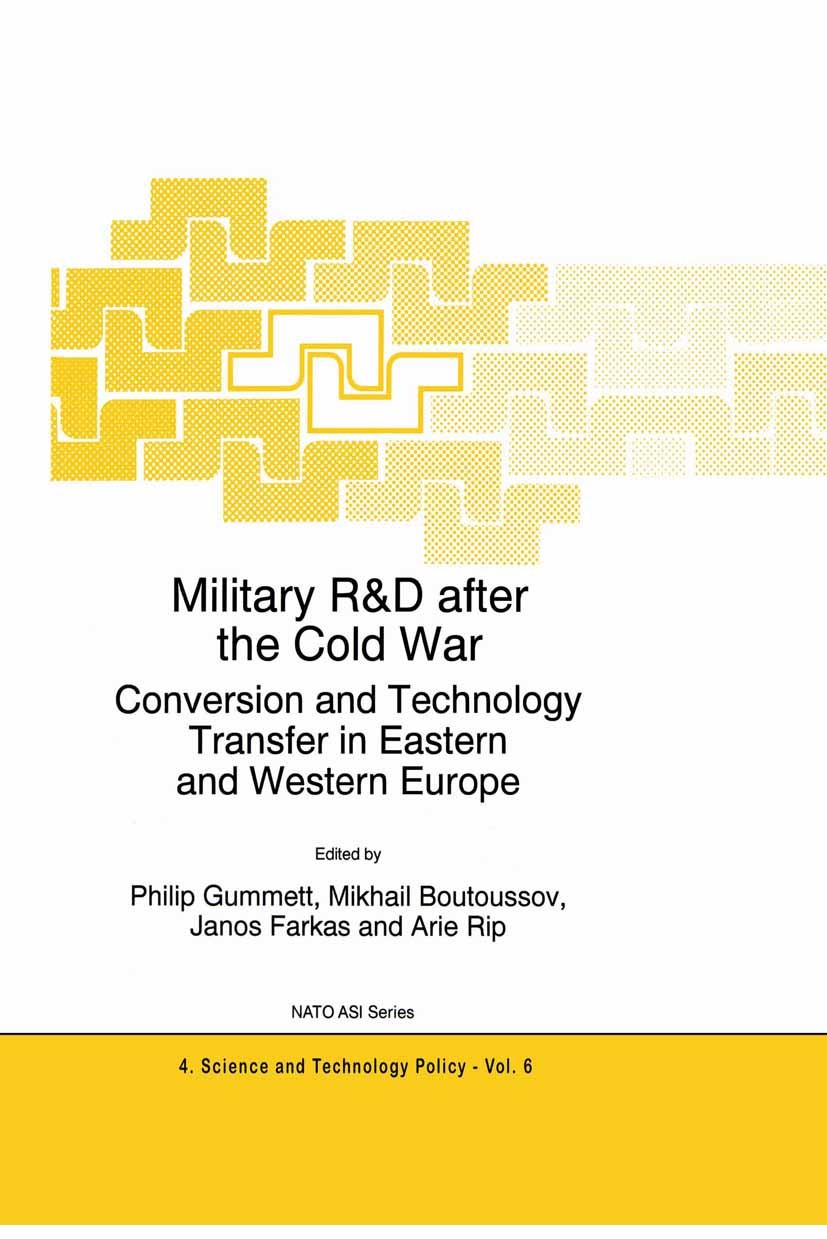| 书目名称 | Military R&D after the Cold War | | 副标题 | Conversion and Techn | | 编辑 | Philip Gummett,Mikhail Boutoussov,Arie Rip | | 视频video | http://file.papertrans.cn/635/634223/634223.mp4 | | 丛书名称 | NATO Science Partnership Subseries: 4 | | 图书封面 |  | | 描述 | Countries establish defence industries for various reasons. Chief among these are usually a concern with national security, and a desire to be as independent as possible in the supply of the armaments which they believe they need. But defence industries are different from most other industries. Their customer is governments. Their product is intended to safeguard the most vital interests of the state. The effectiveness of these products (in the real, rather than the experimental sense) is not normally tested at the time of purchase. If, or when, it is tested, many other factors (such as the quality of political and military leadership) enter into the equation, so complicating judgments about the quality of the armaments, and about the reliability of the promises made by the manufacturers. All of these features make the defence sector an unusually political industrial sector. This has been true in both the command economies of the former Soviet Union and its satellites, and in the market or mixed economies of the west. In both cases, to speak only a little over-generally, the defence sector has been particularly privileged and particularly protected from the usual economic vicissitu | | 出版日期 | Book 1996 | | 关键词 | Europe; European Union (EU); Import; Nation; technology policy | | 版次 | 1 | | doi | https://doi.org/10.1007/978-94-009-1730-9 | | isbn_softcover | 978-94-010-7275-5 | | isbn_ebook | 978-94-009-1730-9Series ISSN 1383-7176 | | issn_series | 1383-7176 | | copyright | Kluwer Academic Publishers 1996 |
The information of publication is updating

|
|
 |Archiver|手机版|小黑屋|
派博传思国际
( 京公网安备110108008328)
GMT+8, 2026-1-23 20:05
|Archiver|手机版|小黑屋|
派博传思国际
( 京公网安备110108008328)
GMT+8, 2026-1-23 20:05


